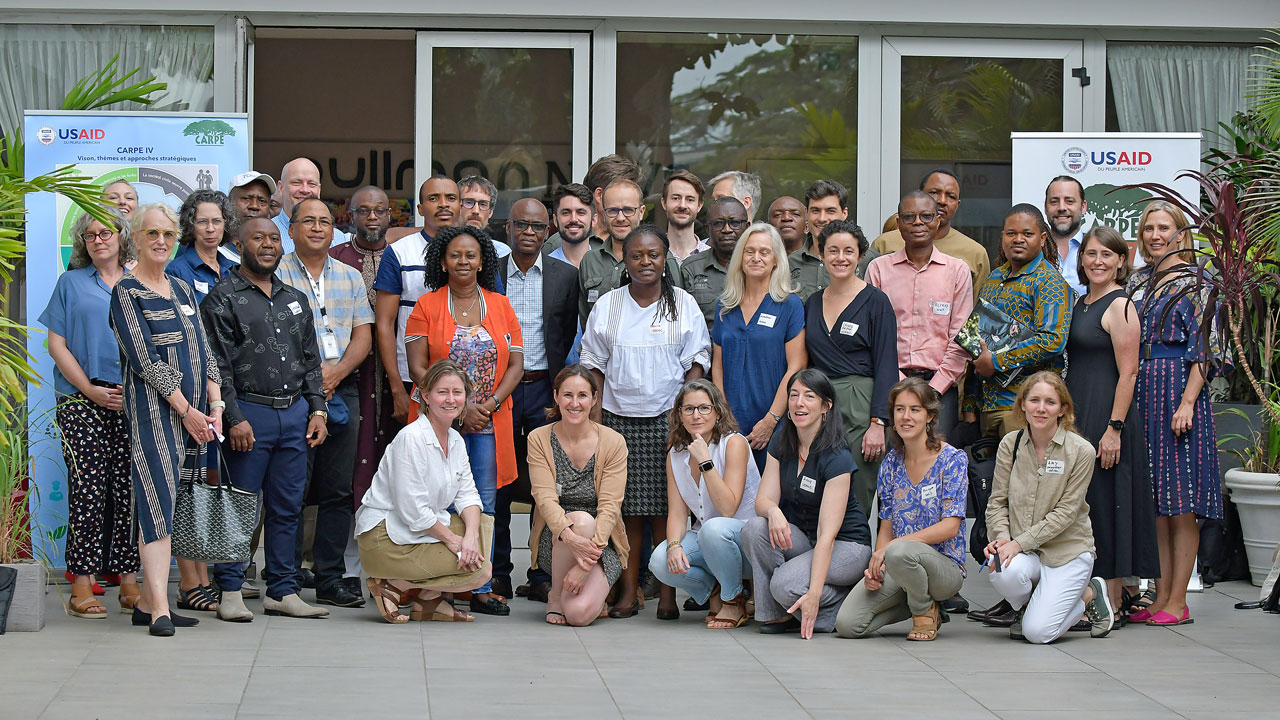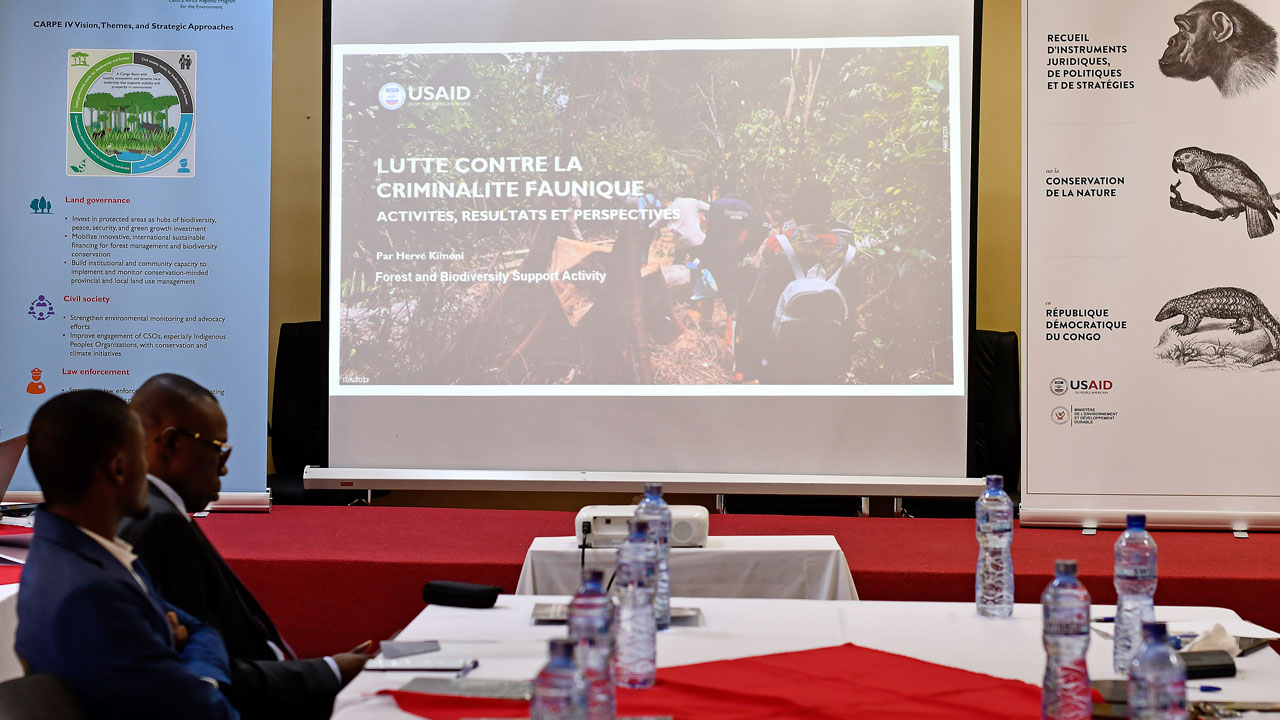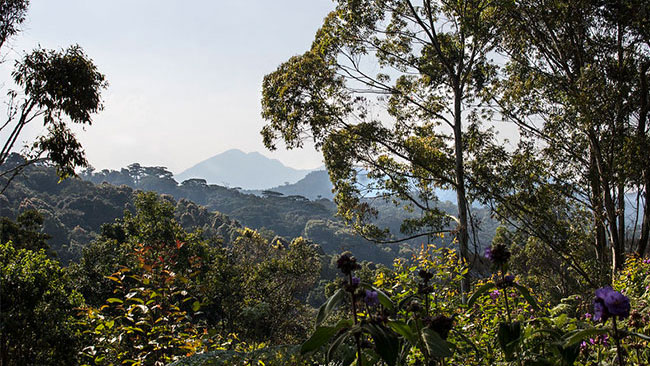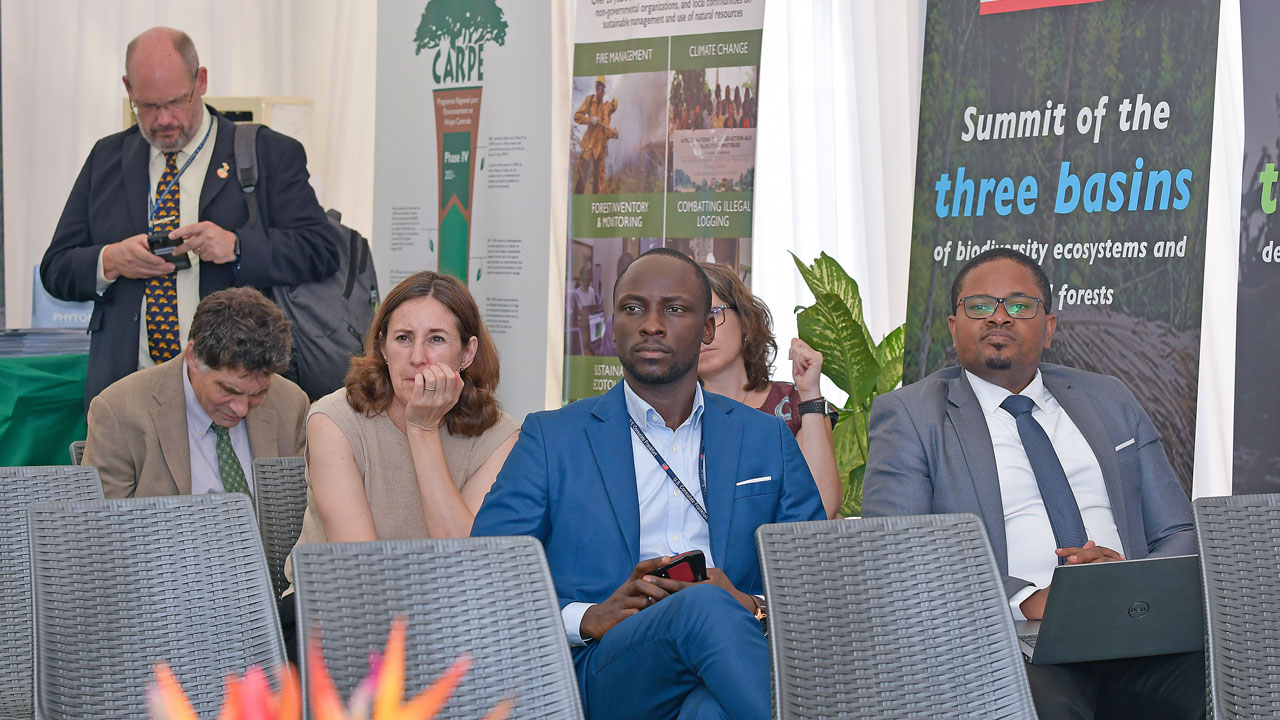
Central Africa’s rainforests are a vital source of food and income for local communities—a supplier of fuelwood, timber, and water regulation for downstream cities and a storehouse of carbon and biodiversity for the planet. However, forest loss is accelerating as agriculture and settlements expand, more timber and fuelwood are extracted, and populations migrate to new areas as refugees from conflict or in search of jobs and land to farm. Conserving forests and biodiversity in the face of these pressures requires effective and accountable local institutions to design and enforce evidence-driven policies that work for both wildlife and people.
The five-year Forest and Biodiversity Support Activity (FABS) is funded by the U.S. Agency for International Development (USAID) through its Central Africa Regional Program for the Environment (CARPE). The Activity will focus on three interconnected objectives to address threats to biodiversity and forests in the Congo Basin.
Benefits
- Strengthening institutional capacity to address threats to forests and biodiversity
- Fostering national and regional knowledge exchange
- Testing new strategies for wildlife and forest conservation and sustainable finance
- Applying evidence-based analysis to address regional forest and biodiversity challenges
- Supporting strategic communications for CARPE
Strengthening leadership and stakeholder participation in natural resource management
FABS works closely with civil society organizations, academia, the private sector, and policymakers to strengthen their institutional capacity to address threats to forests and biodiversity. Through its grants program, FABS is supporting its grantees to test new strategies to improve market-based approaches to community forests, strengthen efforts to counter wildlife trafficking, and pilot alternatives to charcoal to reduce forest degradation.
Improving policy, regulatory, and enabling environments
The Activity collaborates with government agencies to address constraints and gaps in the policy and regulatory framework to enrich and inform provincial, national, and regional policy discussions. For example, FABS supports conservation and protected area authorities to improve systems for wildlife crime enforcement and CITES compliance in the Democratic Republic of Congo and is completing a regional analysis of institutional, policy, and governance barriers for wildlife trafficking prevention.
FABS also assists with analysis and policy engagement to strengthen the enabling environment for sustainable finance for conservation, including regional assessments of nature-based tourism and climate finance opportunities. FABS also supports local grantees to share their implementation experience to inform policy dialogue on community forests.
Strengthening innovative and evidence-based approaches
Through evidence-based analysis, convening learning events with other CARPE-supported practitioners, and supporting USAID CARPE’s learning agenda, FABS shares lessons learned on impactful strategies for reducing forest loss, conserving biodiversity, and promoting inclusive market systems.
At a glance
Contract value
Client
Implementation period
2020–2025
Services
Environment, forest conservation, natural resource management


